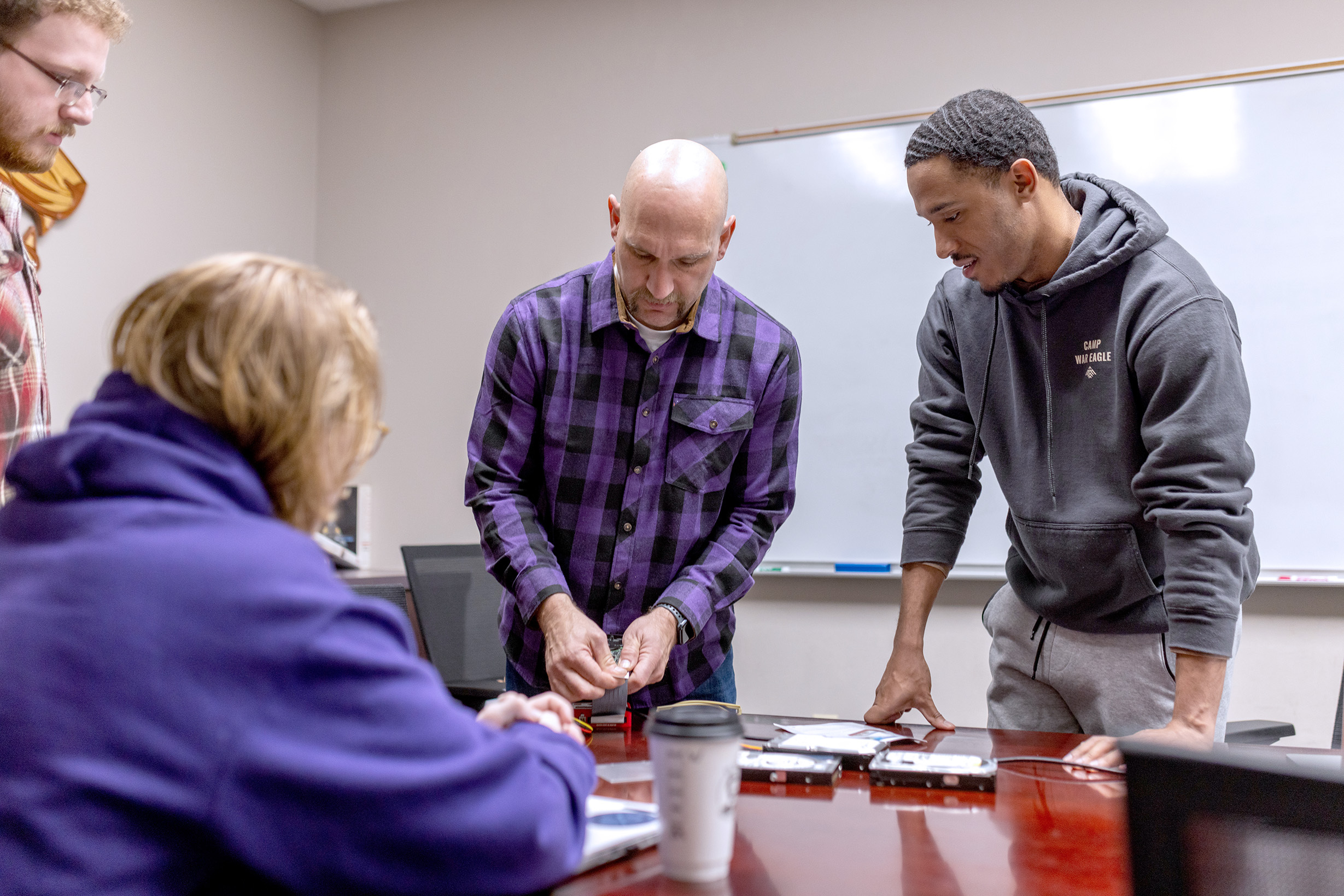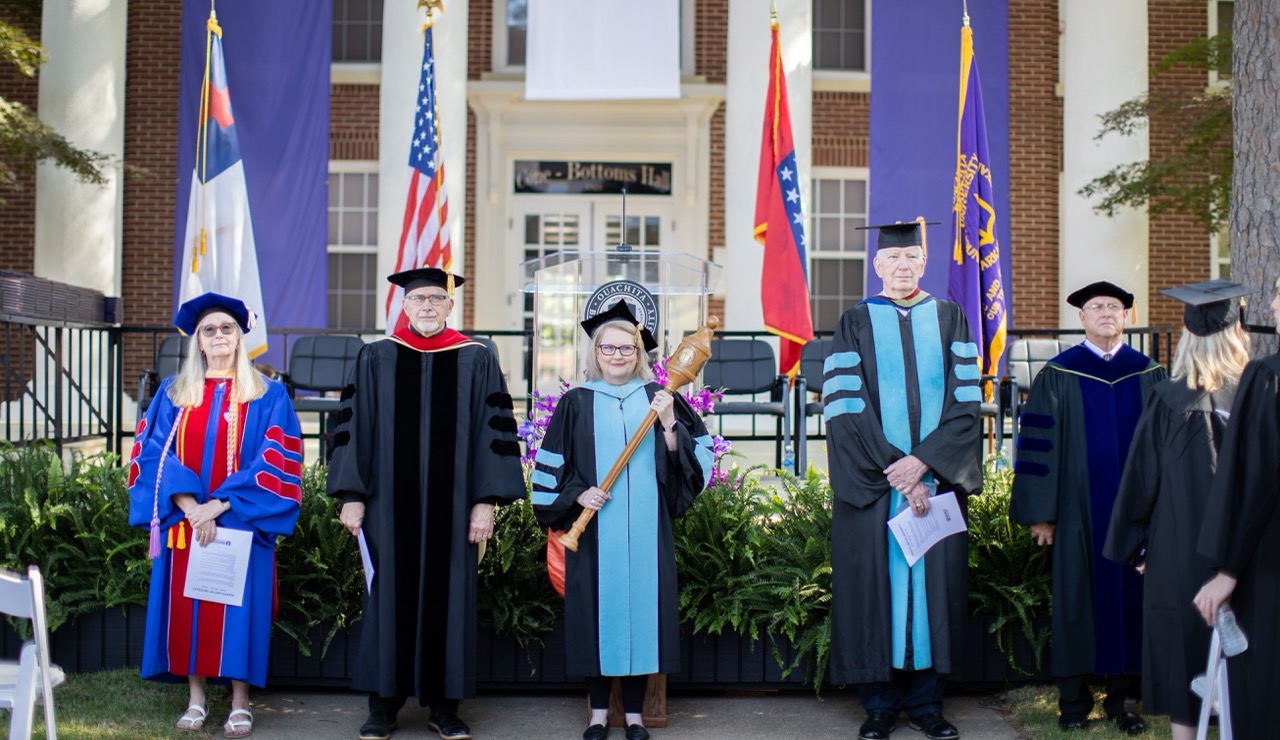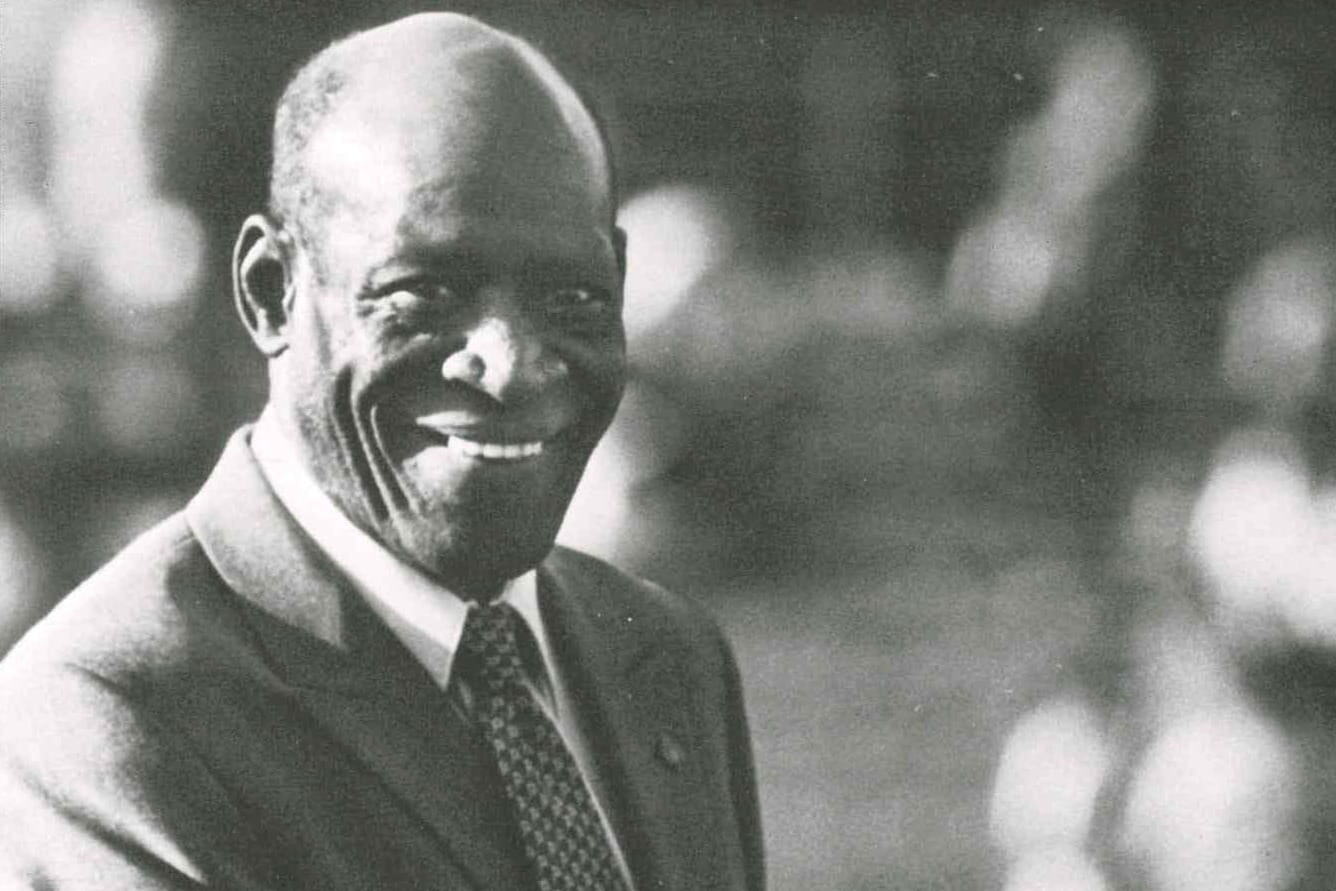Cybersecurity Q&A: Scott Anderson
 February 12, 2025
- James Taylor
February 12, 2025
- James TaylorScott Anderson recently joined Ouachita’s faculty as an instructor of cybersecurity, a program launching in Fall 2025. I visited with Scott to learn more about cybersecurity and how Ouachita’s program will prepare students for careers in the industry.
Q: What got you into the world of cybersecurity?
A: I joined the Air Force in the 90s and started working on electronics, radios, navigation systems. Even though they were really old airplanes, they were still computers. Troubleshooting those things piqued my interest. After eight years working on planes, I moved into intelligence operations and cyber operations. Intelligence missions rely heavily on cyber, with systems that are top secret, so security is much more robust than it is on other networks.
Q: I sometimes hear the terms “cyber” and “cybersecurity” used interchangeably. How do you use them?
A: My interpretation, or the broader term, is “cyber,” which includes the technology you use every day, not just on your computer. The mobile device in your hand, hardware, software, automation, logistics, manufacturing — all those things have computers that control them and monitor and collect data. So data, to me, is cyber. Data transmitted through Wi-Fi is cyber. The way we control drones for precision agriculture is cyber. AI is cyber, and it’s changing the game for so many businesses and organizations.
Q: What kinds of careers do you see people going into with a cybersecurity degree?
A: Every industry has cyber needs, so organizations better be asking themselves: Is our network safe, and are our systems secured? Are we training employees how to appropriately and securely use all technology, including hardware and software?
The government’s Workforce Framework for Cybersecurity (NICE Framework) includes 52 work roles within cybersecurity — from forensics to program managers, to software developers, to system engineers and more. Preparing students for these jobs is not only about the technical skills, because a lot of people can learn technical skills. Companies also want people who fit in their organization’s culture and can effectively communicate technical and non-technical information, so that’s a priority I'm putting into this program at Ouachita.
From a salary standpoint, I've known recent graduates to find jobs with salaries in the 60s all the way to six figures, but a lot of that depends on the people skills I mentioned, as well as work ethic.
Q: What's a good foundation for students thinking about studying cybersecurity at Ouachita?
A: While any experience in the field helps, you don't have to have any background in cyber to succeed in this program. Whether or not students took computer science classes or robotics in high school, they’re learning the basics on their own. They're learning how computers work because they're using them for pretty much every class they take, so they have more knowledge than they give themselves credit for. What they don't have is the ability to understand the fundamentals behind that knowledge, and that’s what they’ll get at Ouachita.
Q: What kind of practical, hands-on experience will students get in the program?
A: From the start, our intro class has labs integrated into it. I like to learn by doing things with my hands, so in a class I might pull up an operating system and show students where to find specific settings, tools or files, then they'll have opportunities to do that on their own. They’ll also get experience within the computer lab, cloud systems, hacking tools and forensic kits that are all getting set up now with the assistance of the Workforce Strategy Grant we received in November from the Arkansas Department of Commerce as part of the Higher Industry Readiness Through Educational Development program.
I also encourage students to share what they’re learning. It’s not just relevant to them; it's relevant to someone they love, and they can help them to be safe.
Q: Mac or PC?
A: I like both, and they both have value. I do like the way Mac integrates everything — phone, computer, iPad, Apple TV. In terms of the field, you need to learn and understand both, plus Linux. When you look at some backend system stuff, smart devices, most of the “Internet of Things,” those connected devices don't run Microsoft or Mac. They run some type of Linux or another operating system that is not always secure.
Q: On a personal level, what advice do you have for individuals to keep their data safe?
A: Back up the things that are important to you, even digital pictures, including the ones on social media you don’t want to lose. Know what you want to protect and how you want to protect it. Second, use complex passwords and multifactor authentication. And third, update the software on your phones, computers and other devices that are on your work or home networks. Everybody’s probably heard that, but not everybody does it.
Q: Last question: How does your faith impact your work in cyber?
A: There’s a lot of gloom and doom in the news, and I feel responsible for staying informed on a lot of that. Much of it is so sad to me. It's challenging, but I know God loves me and God loves everybody, so it’s my job to love him and love others. And if he's blessed me with opportunities in my past to learn some of this cyber stuff, I have a responsibility to share it with others out of that love.
I am so excited with the opportunity to build this program at a Christian university, because we need people in cybersecurity whom business owners and individuals can trust. Ultimately, I'm optimistic and I have my trust in God and his ability to use us, even in our imperfection, weakness and past failures.
Read more here about Scott, and learn how Ouachita’s cybersecurity program will combine classroom instruction and business internships with hands-on experience in a cutting-edge lab where students can test their knowledge in network security, ethical hacking and digital forensics.
James Taylor, a 1999 Ouachita graduate, serves as assistant to the president for communications in the Office of Communications & Marketing.
Lead photo by Meghann Bledsoe
You Also Might Like
Ouachita reports Spring '26 enrollment, led by 50% increase in graduate students
February 11, 2026Recent
Ouachita reports Spring '26 enrollment, led by 50% increase in graduate students
February 11, 2026




